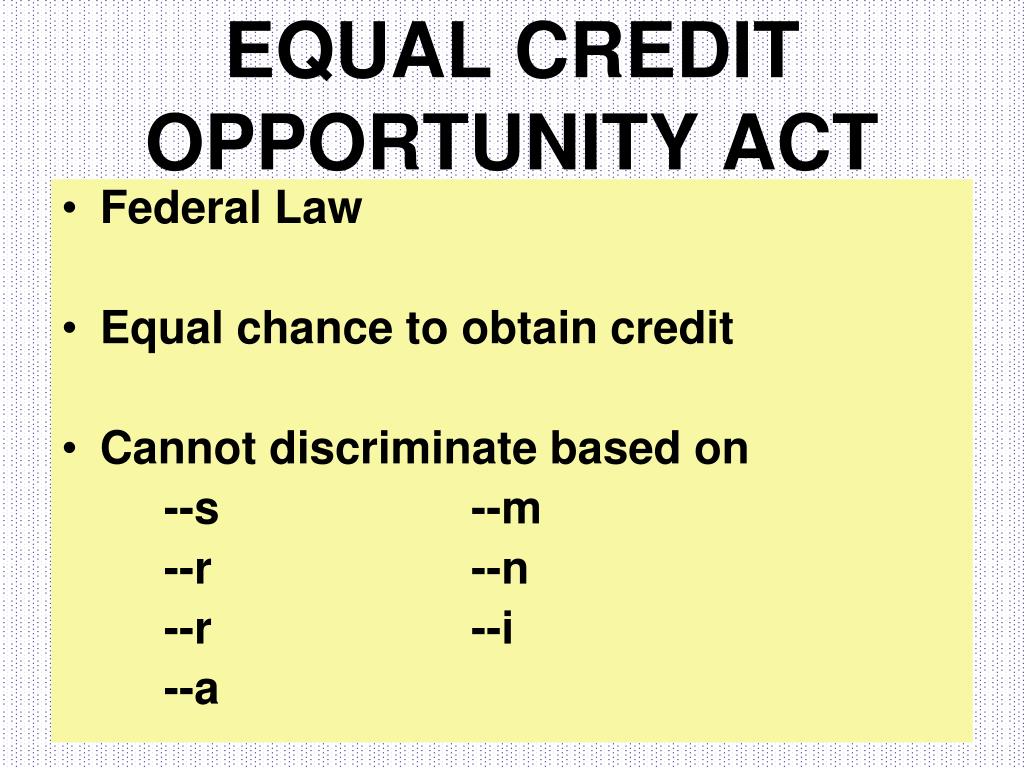

While this landmark ruling is a crucial step forward in addressing discrimination against LGBTQ+ people, the Equality Act is still necessary. Clayton County that Title VII of the Civil Rights Act prohibits employment discrimination on the basis of sexual orientation and gender identity because they are types of sex discrimination. In June 2020, the Supreme Court ruled in Bostock v. By explicitly including sexual orientation and gender identity in these fundamental laws, LGBTQ+ people will finally be afforded the exact same protections as other covered characteristics under federal law. These important updates would strengthen existing protections for everyone.ĭecades of civil rights history show that civil rights laws are effective in decreasing discrimination because they provide strong federal remedies targeted to specific vulnerable groups.

#EQUAL CREDIT OPPORTUNITY UPDATE#
The legislation also amends the Civil Rights Act of 1964 to prohibit discrimination in public spaces and services and federally funded programs on the basis of sex.Īdditionally, the Equality Act would update the public spaces and services covered in current law to include retail stores, services such as banks and legal services, and transportation services. The Equality Act would amend existing civil rights law-including the Civil Rights Act of 1964, the Fair Housing Act, the Equal Credit Opportunity Act, the Jury Selection and Services Act, and several laws regarding employment with the federal government-to explicitly include sexual orientation and gender identity as protected characteristics. The Equality Act would provide consistent and explicit non-discrimination protections for LGBTQ+ people across key areas of life, including employment, housing, credit, education, public spaces and services, federally funded programs, and jury service.

The need for these protections is clear-nearly two-thirds of LGBTQ+ Americans report having experienced discrimination in their personal lives.Įveryone should have a fair chance to provide a home for their families and access essential services without fear of harassment or discrimination. But federal law does not explicitly provide non-discrimination protections based on sexual orientation or gender identity. Our nation’s civil rights laws protect people on the basis of race, color, national origin, and in most cases, sex, disability, and religion. The patchwork nature of state non-discrimination laws and the lack of permanent, comprehensive federal non-discrimination laws leave millions of people subject to uncertainty and potential discrimination that impacts their safety, their families, and their day-to-day lives. Despite significant steps forward, lesbian, gay, bisexual, transgender, and queer (LGBTQ+) Americans continue to experience discrimination across the country.


 0 kommentar(er)
0 kommentar(er)
